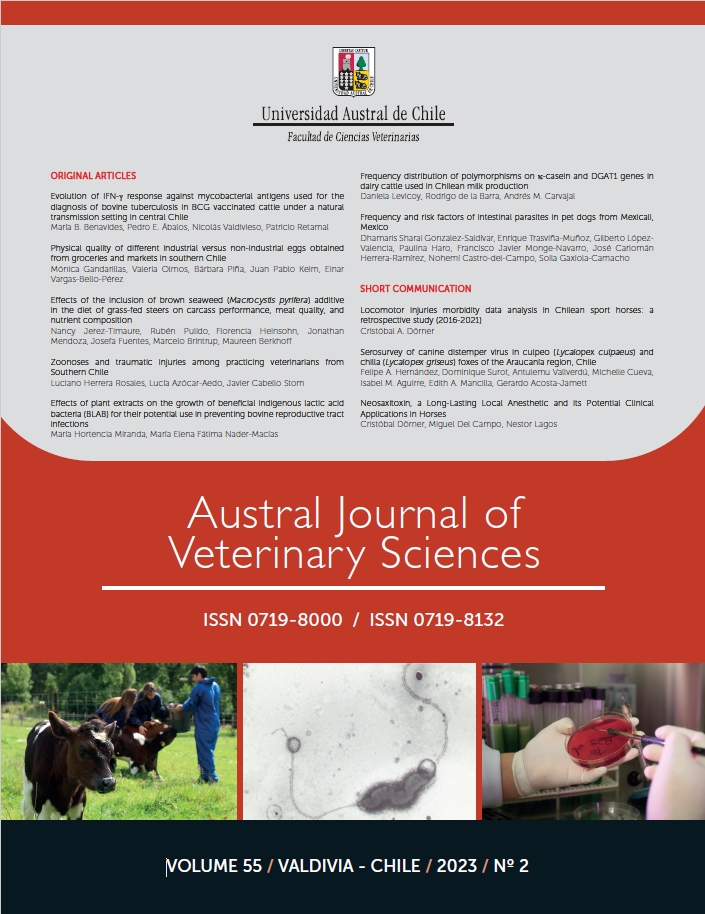Effects of plant extracts on the growth of beneficial indigenous lactic acid bacteria (BLAB) for their potential use in preventing bovine reproductive tract infections
Contenido principal del artículo
Resumen
There is a renewed interest in products based on phytocompounds, prebiotics and probiotics applied to different hosts to exert effects of immunomodulation, anti-inflammation and analgesia. The microbiome of the bovine reproductive tract can become unbalanced for many reasons, favoring the entry and proliferation of pathogenic microorganisms, currently treated with antibiotics that exert adverse effects and generate antimicrobial resistance. To deal with this situation, “phytobiotic” formulas are proposed that combine phytocompounds and probiotics. This work aims to study the effect of plant extracts, prebiotics and vitamins on the growth of native beneficial lactic acid bacteria (BLAB), to be further potentially applied in the design of phytobiotic formulas. Nine beneficial strains isolated from different bovine ecosystems were evaluated against nine phytocompounds, two prebiotics and five vitamins. Affinity was assayed using the diffusion technique on agar plates, and the effect of the phytocompounds on the growth of lactic acid bacteria by microplates. The growth of all the strains was affected by some plant extracts, showing a stimulating or inhibitory effect. Diffusion-agar plates show that only vitamin A affected the viability of Lactobacillus johnsonii CRL1702 at concentrations higher tan 7.5 mg/ml. When studying the growth kinetics of the strains with the phytocompounds, the results show that the effect was different in each of one the associated strains + plant extracts, indicating a strain-specific effect of plant extracts on each BLAB strain. Lapacho and Malva stimulate the growth of most microorganisms, then were selected to be combined with BLAB to design a phytobiotic formula with potential therapeutic activity to treat bovine reproductive infections. Plant extracts at the evaluated concentrations did not inhibit the growth of most of the pathogens responsible for endometritis. On the other hand, the highest concentrations of phenolic compounds were detected in Echinacea, Lapacho and Llantén; and the best percentages of antioxidant activity were evidenced in Garlic, Blueberry and Chamomile (<60%).

